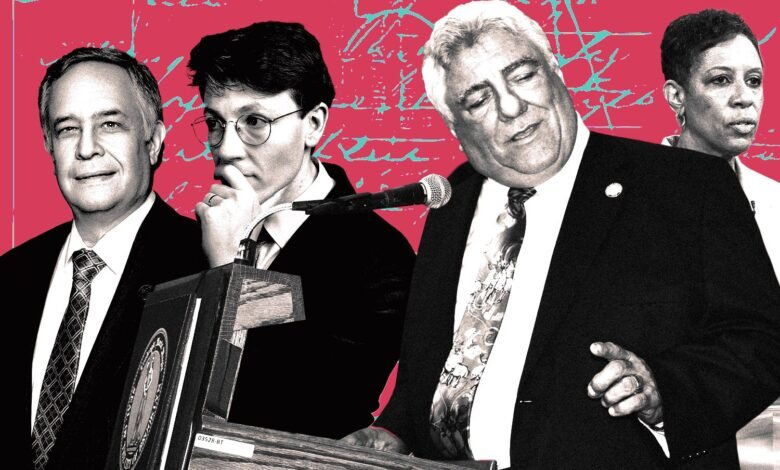Board of Elections Mulls Fate of Ballot Questions

In the eleventh hour, the fate of three ballot proposals that take aim at the city’s land use review process is in jeopardy.
On Tuesday, the city’s Board of Elections will consider five questions approved by the Charter Revision Commission. Typically, this part of the process would be a mere formality, a stamp before the questions are posed to voters in November.
But City Council leaders challenged three of the questions, alleging that they threaten to mislead voters. The questions ask whether various changes should be made to the city’s land use review process, largely related to speeding up approvals for housing projects and restricting the informal veto power local City Council members wield over rezonings.
But whether the Board of Elections has the power to make such drastic changes to the upcoming ballot depends on who you ask.
Executive Director Michael Ryan told The Real Deal that the Board of Elections’ legal team was reviewing whether the board has the authority to reject these questions. The board will discuss the issue on Tuesday, just two days before the deadline to finalize the ballot.
During a meeting on Tuesday, President Frederic Umane cast doubt on the board’s ability to halt the proposals, noting the board’s “ministerial role.”
What falls under “ministerial” is apparently up for debate.
The City Council pointed to a 1994 decision by an appellate court that upheld an Erie County Board of Elections’ rejection of a ballot question. In a response letter, Charter Revision Commission Executive Director Alec Schierenbeck cited the same case, but specified that the rejection was upheld because the proper protocol for certifying ballot questions hadn’t been followed. It is within the “strictly ministerial” purview of the board to reject a question in that scenario, but the wording of a ballot question should be left to the courts, the letter states.
When asked about the issue, Jerry Goldfelder, an election law attorney with Cozen O’Connor, also cited the appellate court decision and the fact that it “recognized a board’s authority to approve or reject a ballot proposal.”
“It remains to be seen what the board, or ultimately a court, would do here,” he told TRD in an email.
During Tuesday’s meeting, Commissioner Frank Seddio argued that a ballot proposal could be challenged if unclear or misleading.
“At best, in my reading, it is ambiguous, at worst it’s misleading,” he said, emphasizing the far-reaching implications of the ballot proposals. Seddio, a former Kings County Democrats boss, was appointed to the board in December by the City Council’s Democratic caucus. A number of progressive Council members opposed the choice, the City reported at the time.
Schierenbeck’s letter counters that the ballot questions strictly follow state election law, adhering to its word count limits and clearly spelling out how a “yes” versus a “no” vote would shift authority over certain land use decisions.
As of Friday afternoon, board officials would only say that the issue was still under consideration and would be addressed during Tuesday’s meeting. Whether the board rejects or approves the questions, the body’s actions next week are likely to result in legal action. The City Council has already indicated that it is prepared to sue to block the proposals from being placed on the ballot. The Charter Revision Commission emphasized in its letter that the courts should decide, not the Board of Elections.
One of the questions the Council wants eliminated asks whether the city should replace the mayoral veto in the Uniform Land Use Review Procedure, or Ulurp, with a three-member appeals board for certain projects. The board could only reverse Council decisions on projects that would result in affordable housing in one borough, not citywide land use actions.
Another asks voters if modest housing projects should go through a quicker review process that bypasses City Council approval. The third proposal would fast-track housing (avoiding a Council vote) in districts that have approved the lowest rates of affordable housing.
The City Council’s attempts to eliminate these questions — and the uncertainty over how the board will act — have drawn the ire of real estate and housing groups.
“We are at a crossroads,” New York Apartment Association’s Kenny Burgos said in a statement. “Do we let the supporters and opponents of these proposals make their case to the voters and let voters decide, or do we revert to back room deals and cronyism that leave voters powerless in the decisions about their future?”
Pro-housing group Open New York blamed Republicans on the Board of Elections for trying to “shortcut the democratic process.”
“There seems to be no limit to the corruption, prejudice, and small-mindedness that will drive political pawns who are not policymakers to undemocratically halt progress in its tracks,” Annemarie Gray, the group’s executive director, said in a statement. “The BOE should stay in its own lane and let New Yorkers drive the bus towards their own future by allowing them to vote on these measures, which we are confident will pass overwhelmingly.”
Read more

City Council hints at lawsuit over land use ballot questions

4 ballot questions could defang City Council’s stronghold over rezonings and housing

Charter Commission floats builder’s remedy, development fast track




